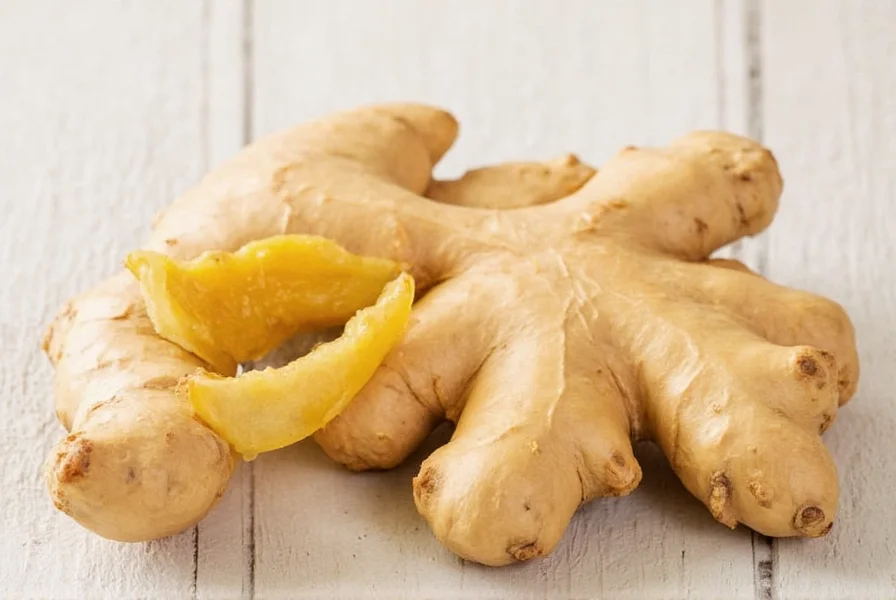Many people wonder does ginger root lower blood pressure as a natural alternative to conventional medications. With hypertension affecting nearly half of adults in the United States, interest in complementary approaches like ginger supplementation continues to grow. Let's examine what current research actually says about ginger's potential effects on blood pressure.
What Science Says About Ginger and Blood Pressure
Several studies have investigated ginger's potential cardiovascular benefits. A 2021 systematic review published in Nutrition Reviews analyzed multiple clinical trials and found that ginger supplementation demonstrated modest reductions in both systolic and diastolic blood pressure, particularly in individuals with hypertension. However, the researchers noted limitations including small sample sizes and short study durations.
Animal studies have shown more promising results. Research in hypertensive rats demonstrated that ginger extract significantly reduced blood pressure through multiple mechanisms, including improved endothelial function and reduced oxidative stress. But as with many animal studies, these findings don't always translate directly to humans.
| Study Type | Participants | Ginger Dosage | Blood Pressure Effect |
|---|---|---|---|
| Human Clinical Trial (2020) | 81 adults with hypertension | 3g daily for 12 weeks | Modest reduction in systolic BP (4-5 mmHg) |
| Systematic Review (2021) | Multiple studies (total n=500+) | 1-3g daily, 8-12 weeks | Small but significant reductions in both systolic and diastolic BP |
| Animal Study (2019) | Hypertensive rats | Equivalent to 1g human dose | Significant BP reduction (10-15 mmHg) |
How Ginger Might Affect Blood Pressure
Researchers believe ginger may influence blood pressure through several biological mechanisms:
- Vasodilation effects - Ginger compounds may help relax blood vessels
- Antioxidant properties - Reducing oxidative stress that contributes to hypertension
- Anti-inflammatory action - Chronic inflammation is linked to high blood pressure
- Calcium channel modulation - Similar to some blood pressure medications
These potential mechanisms suggest why some people ask does ginger root lower blood pressure naturally, though human evidence remains less robust than for pharmaceutical interventions.
Recommended Dosage and Forms
For those considering ginger as a complementary approach, research suggests:
- Daily dosage: Most studies used 1-3 grams of ginger daily
- Forms: Fresh ginger, dried powder, extracts, or standardized supplements
- Duration: Benefits appeared after 8-12 weeks of consistent use
When exploring ginger supplement for high blood pressure, quality matters. Look for standardized extracts with verified gingerol content, as this is the primary active compound researchers believe contributes to potential cardiovascular benefits.
Safety Considerations and Interactions
Ginger is generally safe for most people when consumed in food amounts, but higher medicinal doses require caution:
- Blood thinning - Ginger may enhance the effects of anticoagulant medications
- Blood pressure medications - Potential additive effects with conventional hypertension drugs
- Pregnancy - High doses not recommended during pregnancy
- Surgery - Discontinue at least 2 weeks before scheduled procedures
Anyone with hypertension considering ginger supplementation should discuss it with their healthcare provider first, especially if taking prescription medications. This addresses the common concern about is ginger safe with blood pressure medication.
Ginger vs. Other Blood Pressure Management Approaches
While researching does ginger root lower blood pressure, it's important to understand where it fits among evidence-based approaches:
- Prescription medications - Proven, significant blood pressure reduction (10-20 mmHg)
- Dietary approaches (DASH diet) - Modest but consistent reductions (5-10 mmHg)
- Regular exercise - Significant improvements with consistent practice
- Ginger supplementation - Modest potential benefit (3-5 mmHg based on limited evidence)
Ginger should be viewed as a potential complementary approach, not a replacement for established hypertension treatments. The evidence on ginger for hypertension simply doesn't support using it as a primary treatment method.
Practical Recommendations
If you're interested in trying ginger as part of your blood pressure management strategy:
- Consult your healthcare provider first, especially if taking medications
- Start with culinary amounts (1/2-1 inch fresh ginger daily) before considering supplements
- Monitor your blood pressure regularly to track any changes
- Continue all prescribed medications unless your doctor advises otherwise
- Combine with other evidence-based approaches like the DASH diet and regular exercise
Remember that does ginger root lower blood pressure isn't a simple yes-or-no question. The answer depends on individual factors, dosage, and how it's incorporated into an overall health strategy.
Frequently Asked Questions
How much ginger should I take for high blood pressure?
Research suggests 1-3 grams of ginger daily may provide potential benefits, but consult your healthcare provider before starting any supplementation. This typically equates to about 1/2 to 1.5 teaspoons of powdered ginger or 1-3 inches of fresh ginger root daily. Never replace prescribed medications with ginger without medical supervision.
Can I take ginger with blood pressure medication?
Ginger may enhance the effects of blood pressure medications, potentially causing your blood pressure to drop too low. Always consult your healthcare provider before combining ginger with prescription hypertension medications. They can monitor your blood pressure and adjust medications if needed.
How long does it take for ginger to lower blood pressure?
Based on clinical studies, it may take 8-12 weeks of consistent daily use to potentially see modest blood pressure effects from ginger supplementation. However, individual responses vary significantly, and some people may not experience any measurable changes. Regular blood pressure monitoring is essential.
Is fresh ginger better than supplements for blood pressure?
Both fresh ginger and standardized supplements can be effective, but supplements provide more consistent dosing of active compounds. Fresh ginger (about 1-2 inches daily) in cooking or tea offers culinary benefits with lower risk, while supplements (typically 1-3g standardized extract) provide more concentrated doses used in research studies.
What are the side effects of using ginger for blood pressure?
At culinary doses, ginger is generally well-tolerated. At higher medicinal doses (3g+ daily), potential side effects include heartburn, mouth irritation, and increased bleeding risk. Ginger may interact with blood thinners and blood pressure medications. Those with gallstones should consult a doctor before using ginger medicinally.











 浙公网安备
33010002000092号
浙公网安备
33010002000092号 浙B2-20120091-4
浙B2-20120091-4